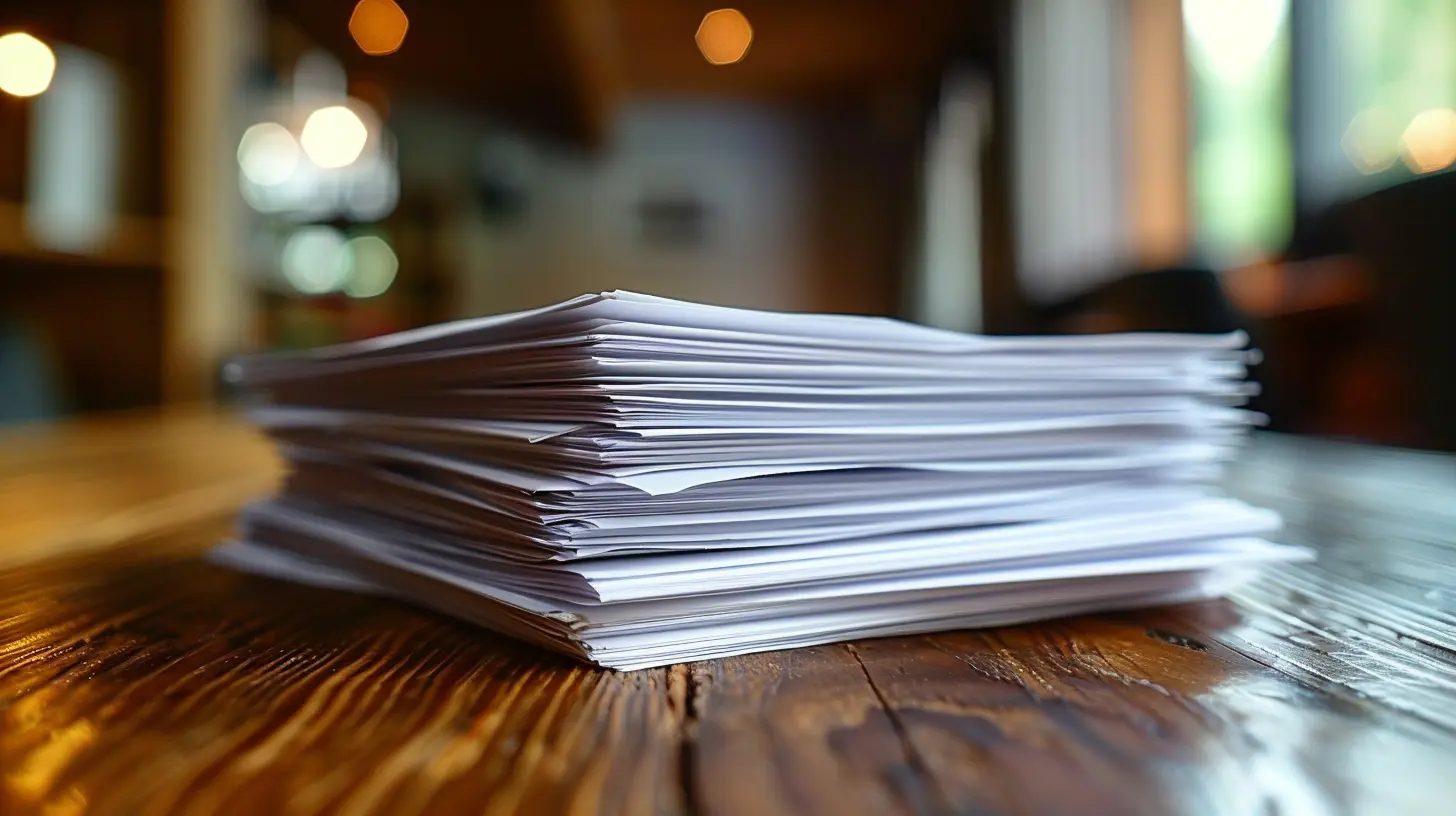Key Documents You Need When Selling Your Property
26 May 2025
Selling your property can feel like a rollercoaster—exciting at times but also a bit overwhelming. The process involves more than just putting up a "For Sale" sign and waiting for a buyer. One of the most critical steps is ensuring you have all the right paperwork in order. These documents not only help streamline the sale but also protect you from legal trouble down the line.
So, what exactly do you need? Let’s break it down.

1. Proof of Ownership
First things first—buyers need to know that you actually own the property you’re selling. This is typically proven with a Title Deed or Deed of Sale.- If you’ve fully paid off your mortgage, you should have the original title deed in your possession.
- If you still have an outstanding mortgage, your lender holds the deed until the loan is cleared.
Without these documents, you can’t legally transfer ownership, so make sure you have them ready before listing your property.

2. Property Sale Agreement
Once you find a buyer, you’ll need to draft a Property Sale Agreement (also called a Sale and Purchase Agreement). This document outlines:- The agreed-upon price
- Payment terms
- Deposit details
- Conditions of the sale
- Closing date
It’s essentially the contract that makes everything official, so ensure it’s professionally drafted to prevent disputes down the road.

3. Identification Documents
This might seem obvious, but you’d be surprised how many sellers forget this step. You’ll need to provide:- A government-issued photo ID (passport, driver’s license, or national ID)
- Proof of address (utility bill or bank statement)
Having these on hand ensures that the transaction is legally binding and confirms your identity as the rightful owner.

4. Property Tax Documents
Buyers will want to know that you’ve been paying your property taxes on time. You should provide:- Property tax receipts for at least the last few years
- Tax clearance certificate (if applicable)
These prove that there are no outstanding tax liabilities, preventing any hiccups during the sale.
5. Mortgage Documents (If Applicable)
If you still have a mortgage on the property, you’ll need to provide details about the remaining balance and any agreements with your lender. Some essential documents include:- Mortgage payoff statement (shows how much you still owe)
- Loan agreement
- Lender’s consent (if required) to sell the property while under a mortgage
Failing to disclose this information can lead to legal complications, so transparency is key.
6. Homeowners Association (HOA) Documents
If your property is part of an HOA, buyers will need to know the rules and fees associated with it. Be prepared to provide:- HOA bylaws and regulations
- Recent HOA dues payment history
- Pending assessments or special fees
HOA fees and restrictions can be deal-breakers for some buyers, so having these documents ready helps speed up the decision-making process.
7. Building Plans and Permits
Did you renovate or make structural changes to your property? If so, you’ll need to show that everything was done legally. Buyers (and lenders) may request:- Blueprints or architectural plans
- Building permits for renovations or extensions
- Certificates of occupancy (if applicable)
Missing these documents can cause delays and even scare off potential buyers, so it's best to be prepared.
8. Energy Performance Certificate (EPC)
In many regions, an Energy Performance Certificate (EPC) is required. This document rates your property's energy efficiency and gives buyers an idea of what to expect in terms of energy costs.If your home has a poor rating, it’s not a deal-breaker—but it helps buyers plan for potential upgrades.
9. Property Disclosure Statement
Honesty is the best policy, especially when selling real estate. A Property Disclosure Statement lists any defects or issues with the home, such as:- Structural problems
- Plumbing or electrical issues
- Pest infestations
- Previous repairs or damages
Providing this document builds trust with buyers and protects you from legal disputes after the sale.
10. Recent Utility Bills and Service Agreements
Buyers often ask for recent utility bills (water, electricity, gas) to estimate ongoing costs. If your property comes with any service contracts (like security systems or maintenance agreements), have them ready as well.This isn’t required but can be a great selling point if your home has low utility costs or well-maintained services.
11. Warranty Documents and Manuals
If appliances or home systems (HVAC, water heater, solar panels) are included in the sale, it helps to provide:- Warranty certificates
- User manuals
- Service history (if available)
This gives buyers peace of mind, knowing they won’t have to spend extra on repairs immediately after moving in.
12. Offer Acceptance and Closing Documents
As the sale progresses, you'll need to sign several documents before closing the deal. These may include:- Offer acceptance letter (confirming the buyer's offer)
- Final closing statement (outlining all costs and fees)
- Transfer of ownership/deed of conveyance
Working with a real estate agent or lawyer ensures that everything is legally binding and reduces the risk of unforeseen issues.
Final Thoughts
Selling a property is a major transaction, and having the right documents ready can make the process smoother, faster, and stress-free. Missing paperwork can lead to delays or even legal troubles, so take the time to gather everything in advance.If you’re unsure about which documents apply to your situation, consider consulting a real estate professional or lawyer. After all, preparation is the key to a hassle-free sale!
all images in this post were generated using AI tools
Category:
Sellers GuideAuthor:

Vincent Clayton
Discussion
rate this article
3 comments
Mae Thompson
Empower your selling journey! Being prepared with the right documents not only eases the process but also boosts your confidence!
June 9, 2025 at 4:02 AM

Vincent Clayton
Absolutely! Having the right documents at hand not only streamlines the selling process but also enhances your confidence in negotiations.
Savannah McNeil
A great summary of essential documents for sellers! Having everything from the title deed to disclosures in order can streamline the selling process significantly. It’s crucial to be prepared to avoid delays and ensure a smooth transaction. Thanks for the insights!
June 2, 2025 at 4:30 AM

Vincent Clayton
Thank you for your feedback! I'm glad you found the summary helpful. Being prepared really does make a difference in the selling process!
Jane Campbell
This article is a fantastic guide for sellers! Understanding the essential documents can streamline the selling process and avoid potential pitfalls. Ensuring you have everything ready will save time and enhance your chances of a smooth transaction. Great tips!
May 30, 2025 at 2:59 AM

Vincent Clayton
Thank you for your kind words! I'm glad you found the guide helpful for navigating the selling process. Best of luck with your transaction!



